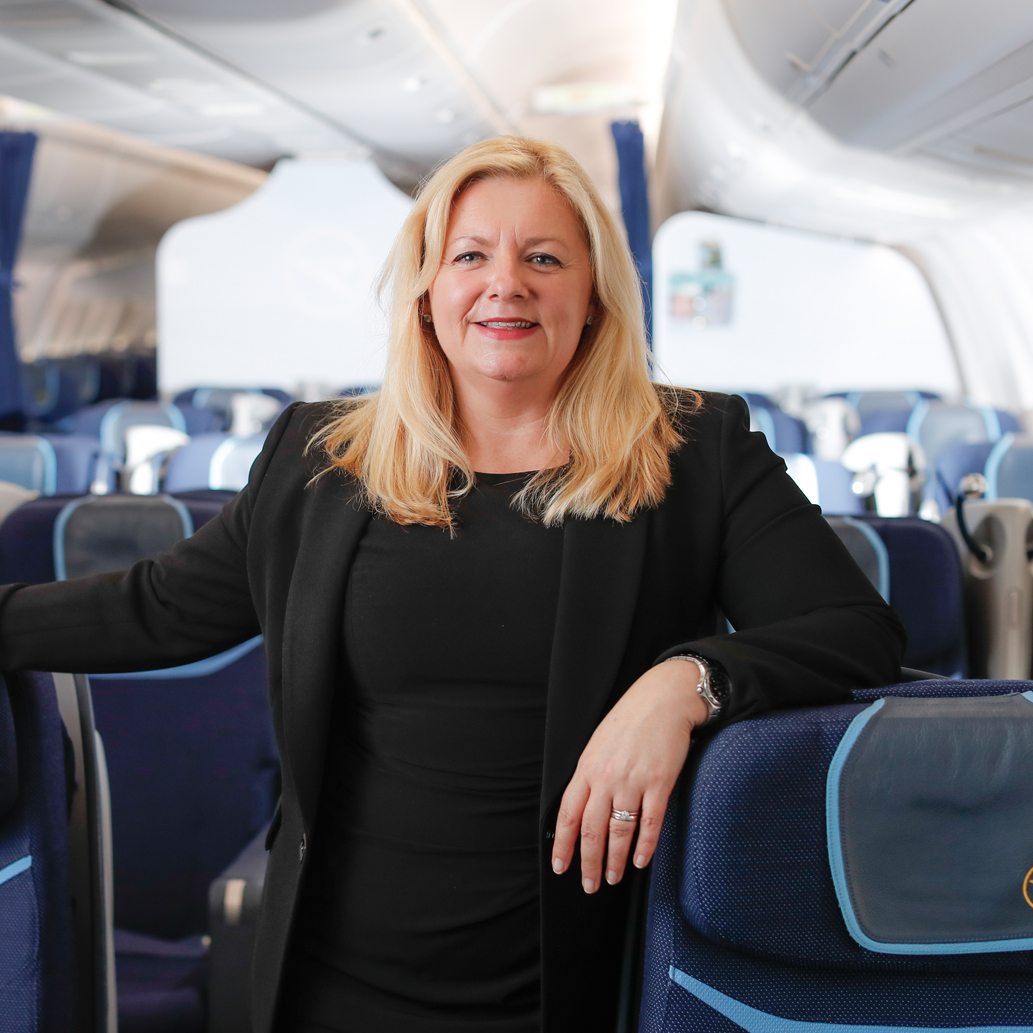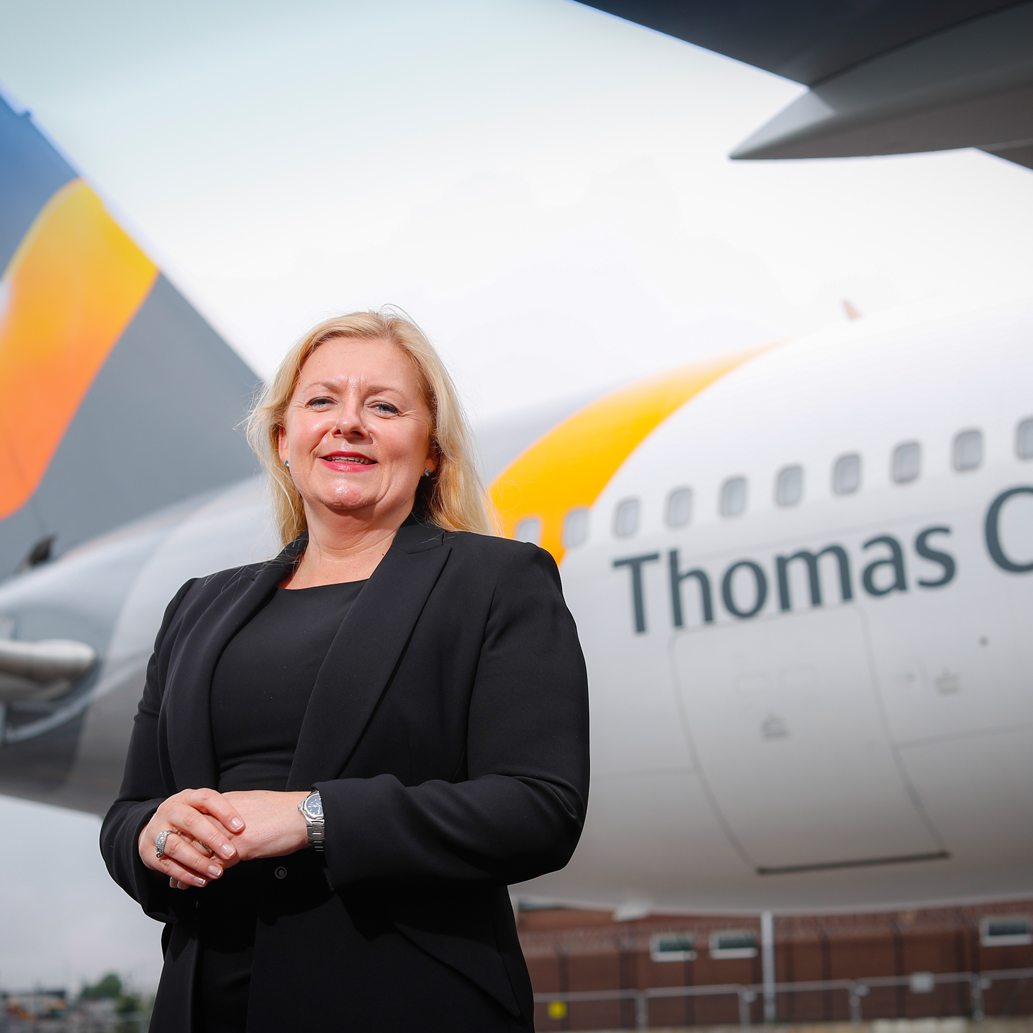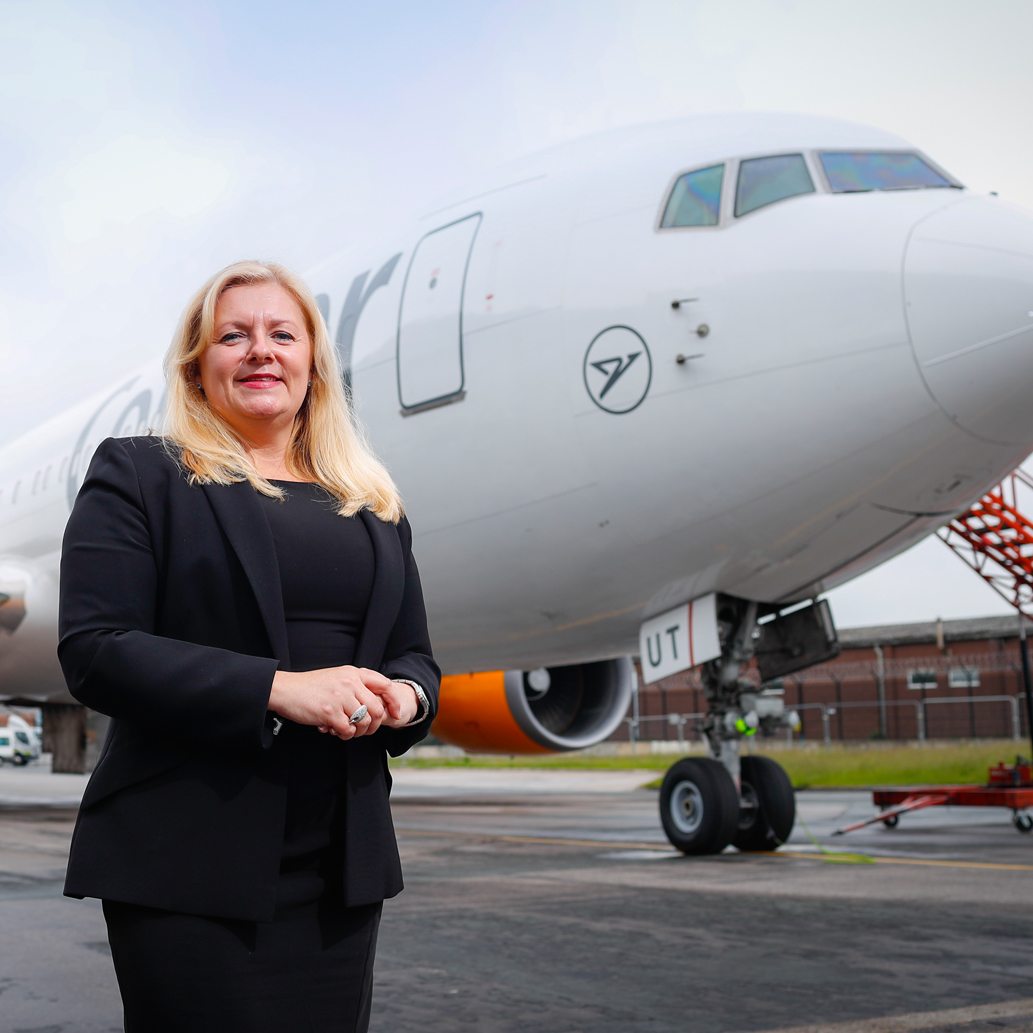Julie, tell us about your early life and how you found the path to a career in HR.
I left university with a Degree in Applied Psychology, went to work in Marks & Spencer’s in Customer Services, and realised quite quickly that it wasn’t quite for me, a bit too conservative perhaps? And so I remember one lunchtime, I went into a recruitment agency and asked what they had, ideally a role dealing with people, and they said they were looking for recruitment consultants at Manpower. I went for an interview, got the job as a recruitment consultant and boy did I get an immediate hit of life’s experience, working with people from all walks of life. I actually went on to work at Manpower for a few years, and was responsible for helping to set up one of the largest contracts at the time, which was with Barclays Bank. Off the back of that, I subsequently accepted a job at Barclays, which was going through a major transformation programme in resourcing. I was involved in this change programme as project manager, changing how customers contacted Barclays through call centres. Once that was set up and running, I then joined Barclays HR Team. But it was when I joined Marconi Telecommunications that I had my first, fully-rounded HR role, which gave me a really broad remit of HR experience. I started off looking after the UK geography and ended up as HR Director of Northern Europe – the servicing wing of the business – at the age of 27, and I believe I was the youngest director in the company at the time.

Marconi was centre stage in the dotcom bubble - massive growth up to the late 90s - then a complete reversal of fortunes.
There was this unstoppable growth, leaders and people at their best, in terms of positivity, with the desire to achieve the potential, sky’s-the-limit growth. It was draining, but thrilling at the same time. But then the rapid deflation was literally like having the oxygen sucked out of the organisation and, to this day, the only part of Marconi that is left is the part of the services organisation that I was involved in. The whole sector hit the skids and there was practically no time to prepare for what quickly became rapid consolidation and mass redundancies. As far as HR goes, that “after the gold rush” reality is the worst, because you are literally dealing with people’s disbelief, and the bald fact that they are out of a job. We went from opening offices in Latvia to closing big offices in the US just a couple of years later. The doom was palpable, but as a practitioner, you learn an awful lot about people and yourself as an individual.

What did you learn about yourself?
A great deal indeed! I had always believed that to be a really useful leader you had to have tons of confidence. But later I learnt that having compassion and being humble was really at the heart of senior people management, and that’s something that can quickly diminish in bigger organisations where people can become numbers. You must never lose sight of that. Also it’s an often said quote that anyone can manage in growth and boom, it’s in hard times that good leaders shine, and I can attest to the fact that this is true. As I learnt in the rapid decline at Marconi, you’ve got to have the courage to look people in the eye, keep connected and don’t hang people out to dry. I have seen where leaders distance themselves because it makes life easier and that’s not in any book on the subject that I’ve ever read. So I’ve resolved to always be upfront with people and honest, even if you’re the purveyor of bad news. In my experience, if you’re honest, most people appreciate and understand the economics, and compassion goes a long way. They call it mindfulness these days, but it’s always been about what defines a good and effective manager.

Tell us about your next move.
I joined BAE Systems as HR Director for what was a huge density of an engineering population at the time. After the sustained period of corporate hardship and disruption at Marconi, being at BAE was something of a relief, and it was and is, a great British organisation. What I had learnt so far in my career dovetailed nicely with the HR set up, but because of the nature of the businesses within BAE, the pace was maybe slower than I would have preferred and I realised I liked change, even disruption, and dealing with uncertainty excited me, plus there were so many managers on so many levels that I felt as if I was a true cog in the wheel of change. So I decided on what it was that I really enjoyed about HR and senior leadership, and I drew up a short-list, of potential roles with lots of change and movement, and with a real people-facing agenda. An opportunity came up at Manchester Airport Group for an HR director post – a really exciting business – which, as they say, really ticked a lot of boxes career-wise.
As you say, a really dynamic business, give us an idea of some of the things you were involved with.
When I first went to Manchester Airport Group it was a very paternalistic organisation, and it was clear that it had to make some pretty big changes, in terms of the way the business operated and was managed, in order to expand. It was poised to move forward, but what immediately hit me was that it was too centralised, and the relationship between MAG and the trade union was very fractious. So in the early stages, much of my focus was building relationships with people, trust and confidence with the unions and essentially creating the whole people agenda. There had been some very tough changes, particularly in areas such as baggage handling, and so there was some entrenched problems that needed resolving. When you get relationships right with both stakeholders, the best way to make the business change is to work together in partnership, of course. You can still protect your own agendas, but if it comes to a point when you have to change, then you want to be able to make that change and bring people with you. When I was there, MAG made a bid to take over Gatwick. Unfortunately, we didn’t win, but we did with Stanstead airport and I think the way that transitioned was a massive boon for MAG. It’s fair to say that a lot of the work we carried out then is just starting to come into fruition now, and you can really start to see the capital investment and changes turn it into the attractive organisation it is today. Of course, being based at Manchester Airport now with Thomas Cook, I can really keep up with what’s happening with MAG. A while later, the role for Thomas Cook came knocking at the door and, meeting the people there, I felt compelled to join as clearly it was an organisation that was just embarking on a big journey for transformation. I joined Thomas Cook originally as HR Director of the UK airline and, a month after I started, my now boss, Christoph Debus joined as Chief Airlines Officer. Shortly afterwards, he asked me to look after the Group Airline as Group Airlines HR Director in charge of around 9000 staff and of 95 aircraft internationally.
Tell us about the challenges ahead and give us an idea of how you went about devising a plan.
I joined at the beginning of a complete, wide-scale transformation agenda. The UK airline was going through a root and branch change programme, and concurrently with plans to merge the German, Scandinavian and Belgian airline businesses, with a new airline management Board overseeing. So the real focus was, from both an operational and business perspective, creating a one airline culture, which was seen as integral to delivering a competitive and successful business against a backdrop of increasingly cutting competition and mounting regulation, part of an overall picture of tough operation. The watchwords were distinctly clear, we needed authentic engagement and genuine collaboration from the top down. When we announced the creation of a group airline, the enormity of the task was immediately evident.
From a layman’s point of view, airlines are very brand driven and they seem to represent the countries from which they derive, the challenge of finding culture commonality must have been huge.
It was a massive and complex undertaking. Not only do you have the mixture of national culture, you also have that culture embedded in a business that has been operating, day in day out for many years, independently and autonomously. Leadership, of course, would be key to winning hearts and minds, as would clear and consistent messaging, because you have to make sure people believe in you. Going back to the importance of culture, you have to align the common objectives and an empathy for culture, and collaboration in decision-making, means that people feel they are a part of the change programme, not a helpless bystander. The result has seen many significant changes to the way the business operates, but people have remained on-board, eager to move forward and engagement continues to go up. That is a real indicator to us that we’re on the right track. For the first two and half years we have focussed the leadership population and the capability in that leadership to collaborate and engage. We have a long way to go, but it’s moving in the right direction.
Change comes up time and again as the biggest corporate challenge, why do you think that is?
I think I’ve learnt that people do have a natural fear of change, but what they really don’t like is not being kept informed or asked for their opinions and input. I learnt early in my career, you have to be humble and empathetic in your style, but you also need resolve to bring people onto the common path to change, or you will inevitably end up with confusion. Some people, like myself, thrive on change, others really dislike and avoid it – often that is because the environment is pretty unforgiving – so I have learnt from experience that to create an environment where it’s OK to make mistakes, must focus on the impetus to learn from them, rather than proportioning blame. Also, getting the messaging right is fundamental, and the bottom line is building confidence that what is coming on line is going to make the operation so much better. Change really is work-in-progress though, there’s no big green button to press. There is never one big event that makes it happen, there are a lot of little complex things that you have to go back to and revisit and push forward and remind people. But you know, it’s a much-debated issue nowadays, the new workplace structure is flatter and collaborative, and at the basic level, the most senior person at the table shouldn’t be the one that talks the most. The forward-looking notion of leadership is about the difference that listening makes to communication. This has proved to me to be at the heart of respect.
The airline sector is only likely to become more competitive and challenging. What is the business agenda and how are you aligning your HR and resourcing to meet those business needs?
Yes, there are many challenges: Capacity in the market, particularly across Europe is high, there have been a lot of events, and airlines are pushing capacity to destinations in Spain and the Canaries with the budget airlines continuing to set ever lower bars. For UK aviation, the market and competition is huge, so we really have no other recourse than to cut our cloth accordingly, either in cost reduction or thinking of different ways to secure profitable growth. We are in a long-term phase of looking how we work and what we can do to maintain a healthy place in the market. In order to make that happen, fundamentally, we need to look at how we deliver our business as an airline and we are going through another phase of that process now. This means that perhaps more traditional ways of looking at things have to be unpicked, safely and thought of very differently and, of course, with pace. For the People agenda, we have to look at what levels of Leadership, skills and capability the business needs to support starting or progressing projects, as well as minding the business as usual, plus where and how to manage this at affordable cost, but high levels of effectiveness, and ensuring the pipelines are in place to support this – so right people, right place, right time, right cost. This forces you to look at all your delivery processes, ranging from how you deliver talent, through to resource and reward. Additionally, which in times of change sometimes gets forgotten, we need to make sure the HR function is set up to support the change, and so this means that we have had to move and change resource and capability levels accordingly.
You have spoken a good deal of the importance of leadership, what are the main issues that leaders need to get to grips with in your sector?
I think on a basic level, leaders have to accept that in dealing with such huge market competition and adapting to change – maintaining a sustainable platform – so you have to have a number of attributes and capabilities; you have to be humble and authentic, you have to communicate constantly and courageously, insomuch as you have to be honest about the feedback. I find that these days keeping your eye on the ball is more than just about percolating the information that comes in. You also need to have a grasp on the complexities of the modern workplace, and adapting to what the data is telling you, whether that is the way the business is competing, or how effective and engaged people are.
There is such a variety of job types in a business such as Thomas Cook, from an HR perspective, what are the real indicators that you are succeeding across the workforce, that people are really responding?
We are constantly looking at everything, but top of the agenda, in such a competitive market, is performance which is critical of course, and that is right up against customer loyalty and satisfaction. It’s no surprise that in a highly-dynamic, customerfacing business such as airlines, employee engagement numbers directly correlate with customer feedback, for better or worse. In my book, if your engagement scores are consistently going in the right direction you are on the right track – the opposite of that is, if they’re not, you’re in big trouble, it’s that important. Our engagement scores have been moving northwards over the last few years, but complacency is a killer, so we have technologies coming down the line for our fleets and our customers, which are highly-sensitive to any shifts. Like most businesses, we still have a long way to go, but we genuinely do have some of the most amazing people in the industry and I’m so proud I get to work with them. I know it sounds a cliché but looking after people 24/7, in a highly dynamic environment, there really is no hiding place for disengagement and a lack of empathy and respect. You learn pretty quickly if something is badly wrong, as has been witnessed by some of the American carriers in recent times. And that comes to trusting your people to make the calls, and them knowing they are respected. We still haven’t got it completely right, we still have a way to go, because cultural change takes time, but what we have done is certainly going in the right direction.
As you said, technology is a big driver, businesses are compelled to change to merely compete, let alone be on the leading-edge. There's a lot of talk about a lack of skills in the engineering and technology sector, has that been an issue for Thomas Cook?
If you look at the UK market, so far, it’s not been an issue. But we can see from the demographics of our maintenance and pilot workforce that the challenge is going to get a lot more difficult in the next five-to-ten years. Plus with the growth of some of the other airlines, the demand for crucial skills will become more challenging. Currently we have a programme for Engineering Apprentices and have expanded the scope to Business Administration. And now, with the change in Government funding for Apprenticeships, we may be able to look at Flying Crew Programmes – both Pilots and Cabin – but the jury is still out on that. Additionally, we bolstered up the capability pipeline with our global graduate programme, where our graduates rotate through our main home markets, supported by the Undergraduates programmes and Leadership pipeline, underpinned by the launch of our new Learning Management System, which enables more flexible access to learning for our people.
How successful do you think you have been to meet the resourcing challenges and what still needs to be done?
So far we have been relatively successful in adapting how we resource our business on a more flexible and affordable basis but also supporting our current workforce by introducing technology into their delivery processes, which has also improved productivity. So it’s been a real team effort all round. For Thomas Cook Airlines it will be another period of huge change. We will be looking at how we can manage the change and make the experience more competitive and reasonably priced for our customers. We will see a lot of transformation in the aviation industry, I think, and there will be a lot more consolidation and we want to make sure Thomas Cook is at the forefront of moving forward with change. An industry like the airline business drives its own agenda, so it’s an agile approach to running a business which is key. For me, being an HR leader in such a dynamic industry, is a huge privilege and I am so honoured to be working with the people I work with. My experience has been very enriching over the years and in this day and age of constant change, to be able to lead this in an empathetic and understanding way is proving to be the way forward.












